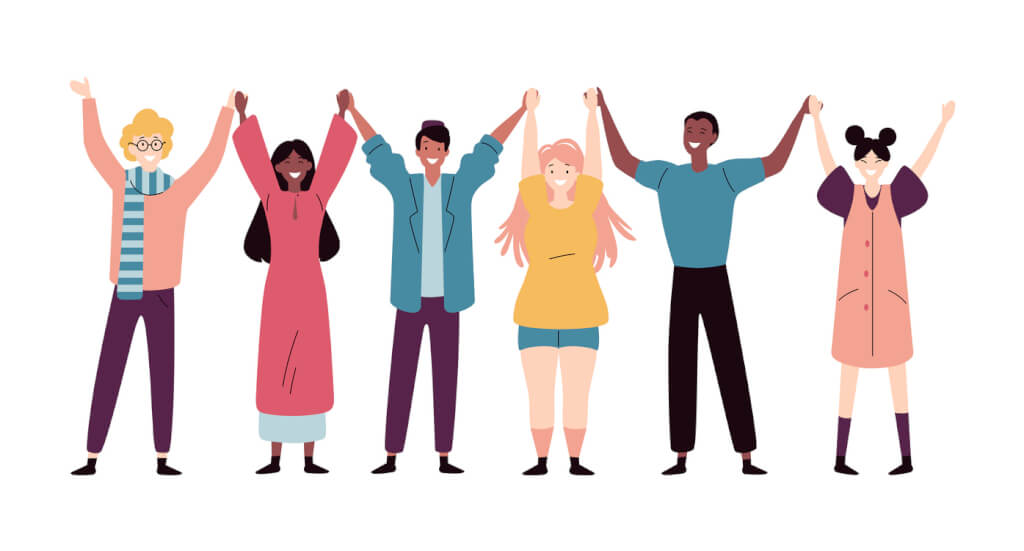Four reasons not to lose heart during the COVID-19 pandemic
'04.04.2020'
ForumDaily New York
The COVID-19 pandemic has disrupted the familiar lifestyle of many people around the world. Experts believe that quarantine due to an outbreak of coronavirus infection can last for months. In such a situation, it is difficult to maintain a good mood. However, reasons for optimism can always be found. Edition Air force talked about five of them.

Humanity has never been so united as today because of the coronavirus pandemic. For example, in Spain, tens of thousands of people wrote letters to the sick, wishing them a speedy recovery. Italy first spoke of a “ray of hope” to improve the situation in the country. Scientists, for their part, are working on creating a vaccine against coronavirus, while residents of many countries express gratitude to doctors who risk their own lives to save strangers. Read more about all this below.
- Gratitude to the doctors
Doctors, nurses, and other healthcare professionals are at the forefront of the fight against coronavirus. After all, it is thanks to their efforts that the infected recover.
To express their gratitude and acknowledge the merits of health workers, residents of many countries began to go out to balconies or courtyards in the evenings and applaud them.
For the first time, such an action took place in mid-January in the Chinese city of Wuhan, where the coronavirus broke out. Videos posted on social networks show how people sing songs of praise and express gratitude.
When the virus went beyond China, this initiative became popular in other countries, where people expressed their gratitude to doctors in this way.
- Italy - in the phase of stabilization of the pandemic
In the middle of last week, Italian authorities announced that the country appears to have entered the phase of stabilizing the spread of infection. Such a statement was made on the basis that for four consecutive days a decrease in the number of new cases of infection and mortality from the virus was recorded there.
Say, on March 25, 3612 new cases were identified. This is less than each of the previous four days. However, on March 26, the number of infected again increased. On March 27, the number of cases decreased compared to the previous day, but mortality jumped to the highest level since the beginning of the pandemic.
On the subject: Rare passers-by share masks and antiseptics: how New York lives in quarantine
“And yet, the first four days of the week, albeit for a short time, gave a ray of hope that things in Italy, which has suffered more than other European countries from the outbreak of a new infection, can get better,” the message says.
The WHO called the trend encouraging, while the chief physician of Lombardy, the region most severely affected by the coronavirus, said there was "light at the end of the tunnel."
3. Scientists are developing a vaccine
People all over the world, tired of having to adhere to quarantine, are waiting for scientists to create a vaccine against coronavirus. To date, several vaccines of this type are under development.
In addition, four volunteers were vaccinated at the Kaiser Permanente Seattle research center in Seattle with an experimental dose of safe genetic code extracted from a new virus. Experts suggest that it will take several months to find out if this and other vaccines in development are effective.
But, be that as it may, scientists are learning more and more about the new coronavirus every day. For example, last week it was reported about studies to decipher the genetic code of the virus, the results of which were encouraging. Scientists have noticed that, unlike ordinary viruses, which mutate as they multiply in the body of an animal or human, in the case of the SARS-CoV-2 coronavirus, this does not happen at all, or it happens, but slowly. If the guess is confirmed, then this may mean that one vaccine will be enough to give a person immunity for a long time. Professor Stefano Menzo, who is directly involved in the problem, confirmed this, saying: "A virus with a stable genome is good news in the development of a vaccine."
4. Cohesion between people
At the physical level, an outbreak of coronavirus has separated many of us. However, in moral terms, such cohesion between people has not been observed for a long time, the source notes. In many countries, citizens come to help each other, show mercy and altruism.
Say, in Britain, hundreds of thousands of people responded to the call to join the army of volunteers to help the National Health Service (NHS). The number of volunteers far exceeded that which the authorities expected. According to Stephen Powys, director of NHS England, he is “stunned by the surge in altruism” to call for help with free medicine.
Many cafes and restaurants working during this difficult time, preparing takeaway or delivery food, treat health workers with coffee and sandwiches for free.
Meanwhile, in Spain, according to the newspaper El Pais, one of the doctors urged the public to write letters to those who were in the hospital with severe syndromes. As a result, tens of thousands of responsive people sent their patients letters with wishes for recovery and words of support.
Another life-affirming flash mob, which began in Italy and Spain, spread around the world - many who were not indifferent began to display homemade drawings and posters with a rainbow in the windows. It symbolizes good luck and optimism, the source explained.







